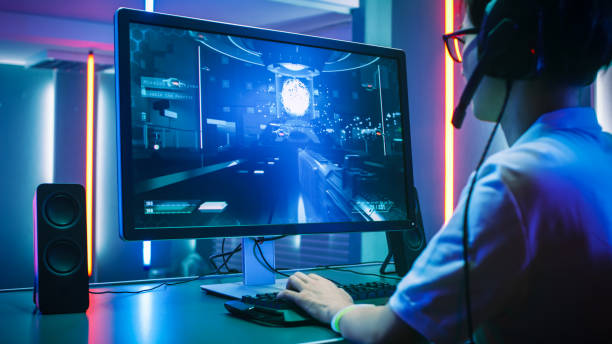The AI has already learned to master 600 basic skills found in a wide variety of video games.
Like other digital giants, Google continues to develop its artificial intelligence (AI). After Bard, and its improved version, Gemini, presented at the beginning of 2024, the Mountain View firm’s DeepMind specialist division gave details on another project: SIMA (Scalable, Instructable, Multiworld Agent).
This AI has the particularity of having the necessary skills to play a video game as a human would.
600 skills learned
To achieve this, SIMA uses not only Google’s language models, but also analysis of 3D worlds and visual recognition. On this basis, the DeepMind teams then exposed the artificial intelligence to video games from eight studios, including No Man’s Sky (Hello Games), Teardown (Tuxedo Labs) and Valheim (Coffee Stain). The aim was to teach them how to play these games without having to analyze the game code.
Here, catalog diversity is key. “Each game in the SIMA portfolio offers a new interactive world, comprising a range of skills to learn,” Google DeepMind explained in its presentation. In total, the model was thus able to learn to perform around 600 basic skills, such as moving around in a 3D universe, climbing a ladder or opening a menu on a gaming platform like betFIRST Casino. All these tasks can be initiated by the user in the form of instructions formulated in natural language.
A full-fledged player
This approach could enable SIMA to run on a wide variety of games. “This simple interface is what humans use, which means that SIMA can potentially interact with any virtual environment,” assured Google DeepMind. Eventually, it will even be able to perform more complex tasks, such as interacting with other players.
As a result, in the future, players could interact directly with SIMA, which here is closer to a full-fledged player than a traditional non-player character (NPC), according to Frédéric Besse, co-leader of the project. “This is early-stage research, and we look forward to further developing SIMA in other training environments and incorporating more powerful models,” Google DeepMind nevertheless tempered in its presentation.
